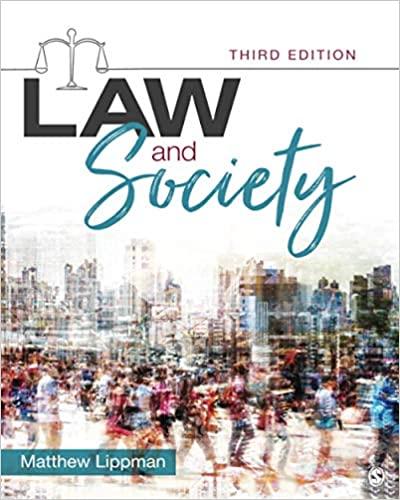Question
1) A man riding a roller coaster is severely injured when the car he's riding in jumps off the track. He sues the amusement park
1)
A man riding a roller coaster is severely injured when the car he's riding in jumps off the track. He sues the amusement park for negligence.
Assuming it is true, which of the following would represent a strong defense against the negligence claim?
A) The man has seen roller coasters before, and knowingly and voluntarily assumed the risk of participating in a dangerous activity.
B) The man snuck into the amusement park rather than paying for admission.
C) The man undid his seatbelt after the roller coaster started moving.
D) The amusement park has never had an accident like this before.
2)
Andy is driving a 20-year-old boat that he borrowed from a friend. While he's on the water, the steering system fails and the boat crashes. Subsequent investigation shows that the steering system failed as a result of corrosion. Andy sues the boat manufacturer for negligence.
How strong is his negligence case against the product manufacturer?
A) Strong, because proximate cause between the corroded steering system and the crash is easy to establish.
B) Weak, unless he can show that the corrosion was the result of a design defect rather than normal wear and tear on a 20-year-old boat.
C) Weak, because he does not have privity of contract, since he was borrowing his friend's boat.
D) Strong, because there is no evidence that Andy's own actions contributed to the damages.
Step by Step Solution
There are 3 Steps involved in it
Step: 1

Get Instant Access to Expert-Tailored Solutions
See step-by-step solutions with expert insights and AI powered tools for academic success
Step: 2

Step: 3

Ace Your Homework with AI
Get the answers you need in no time with our AI-driven, step-by-step assistance
Get Started


